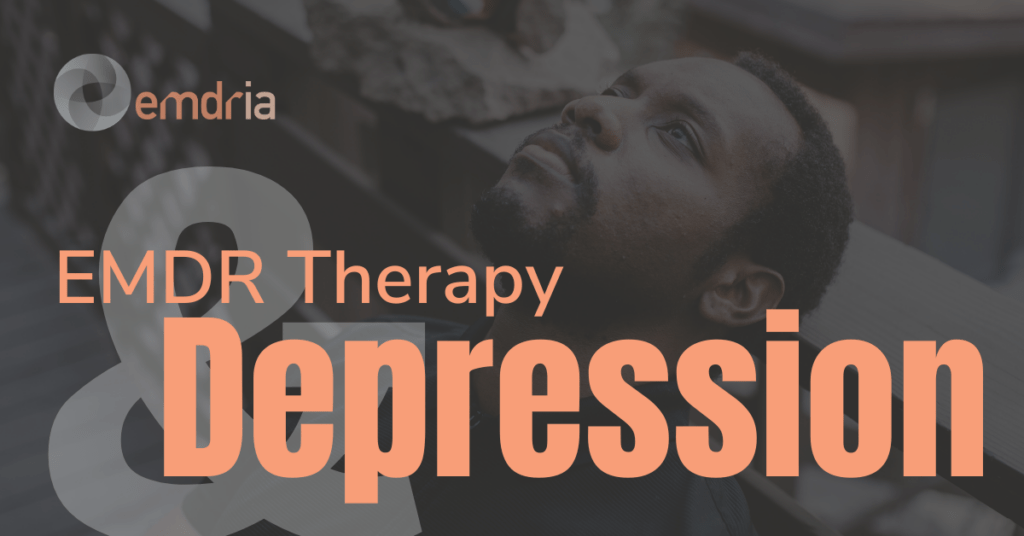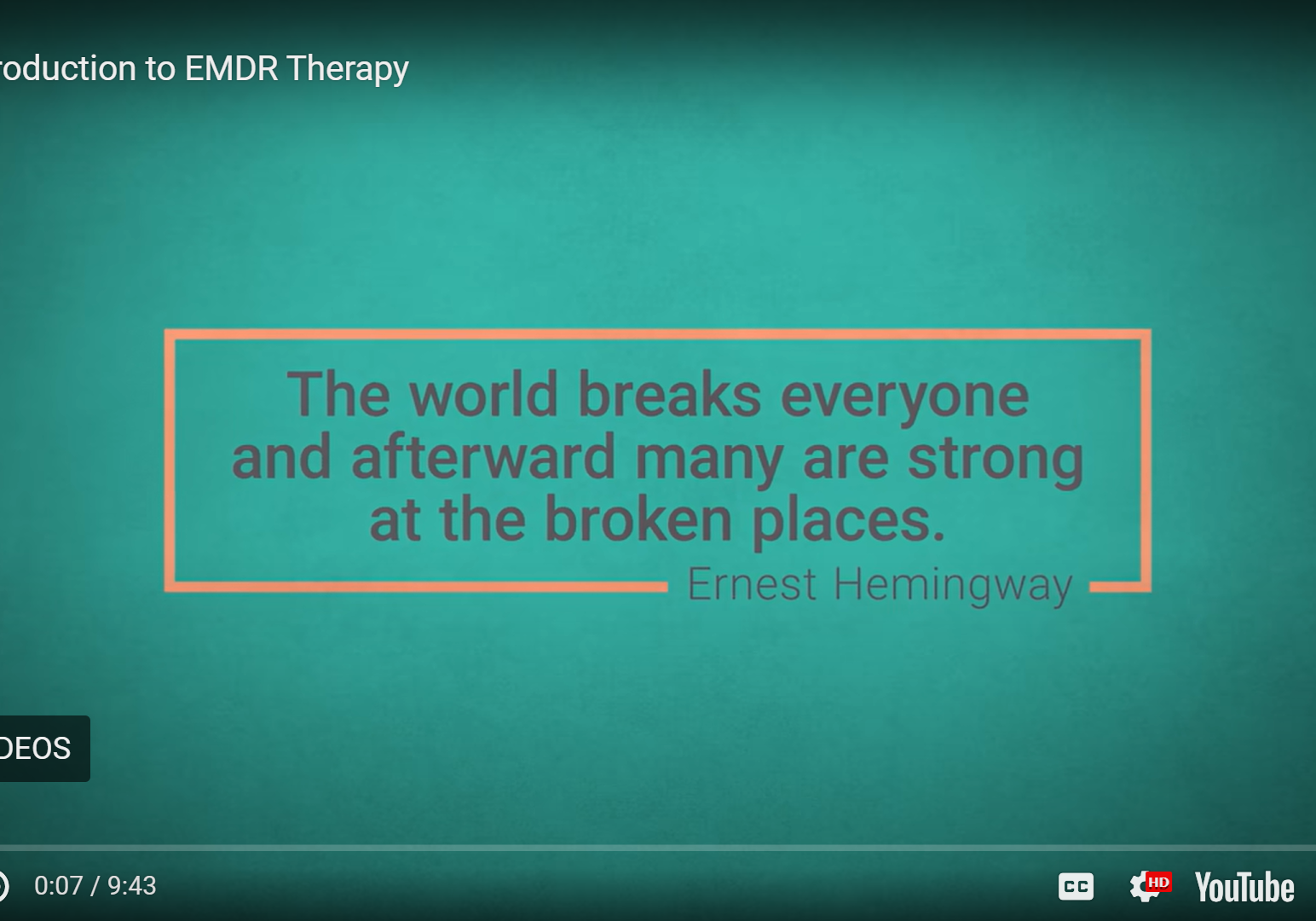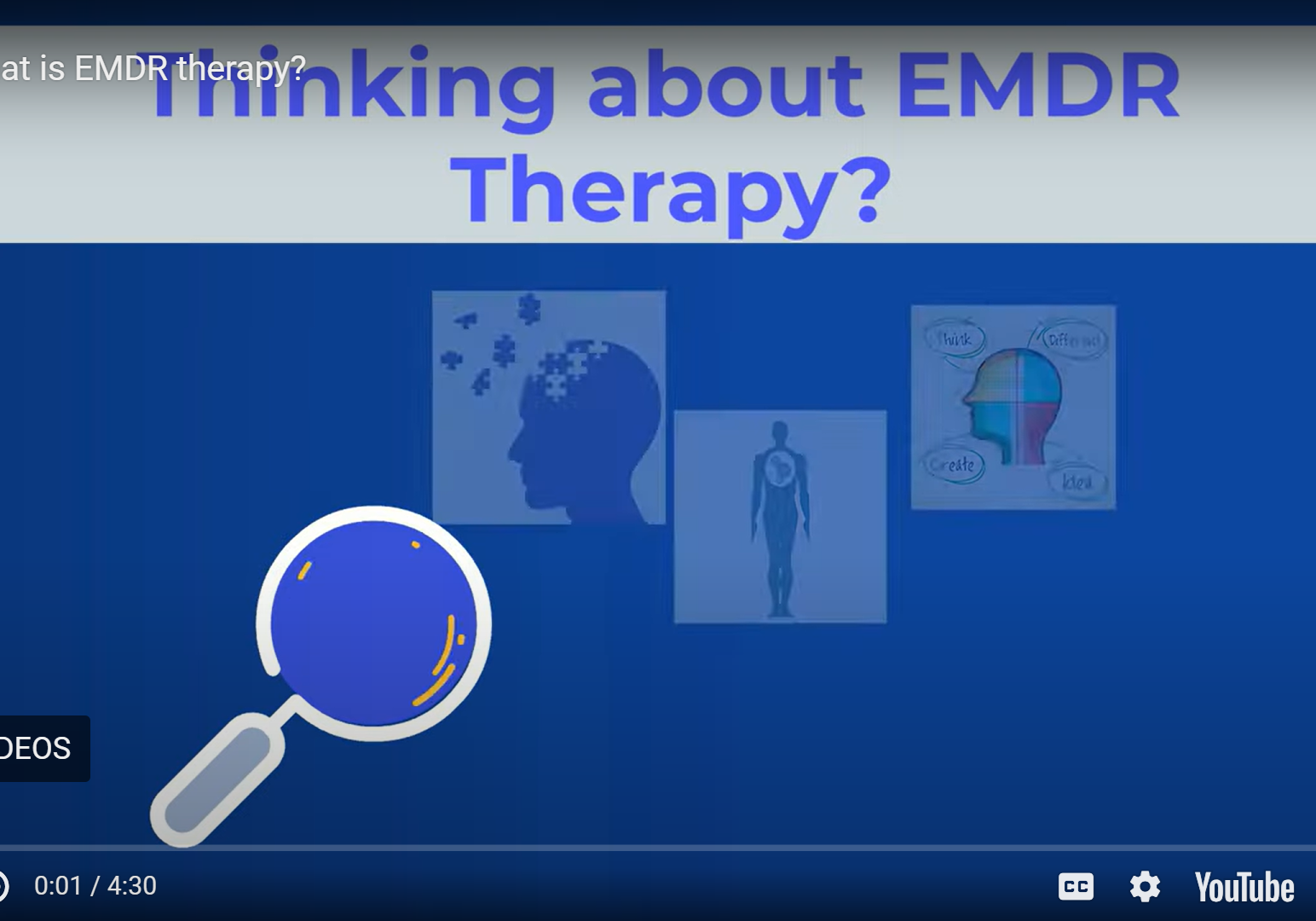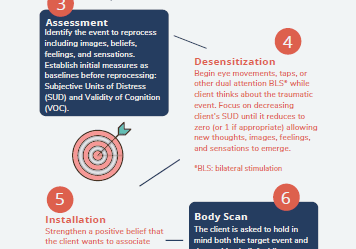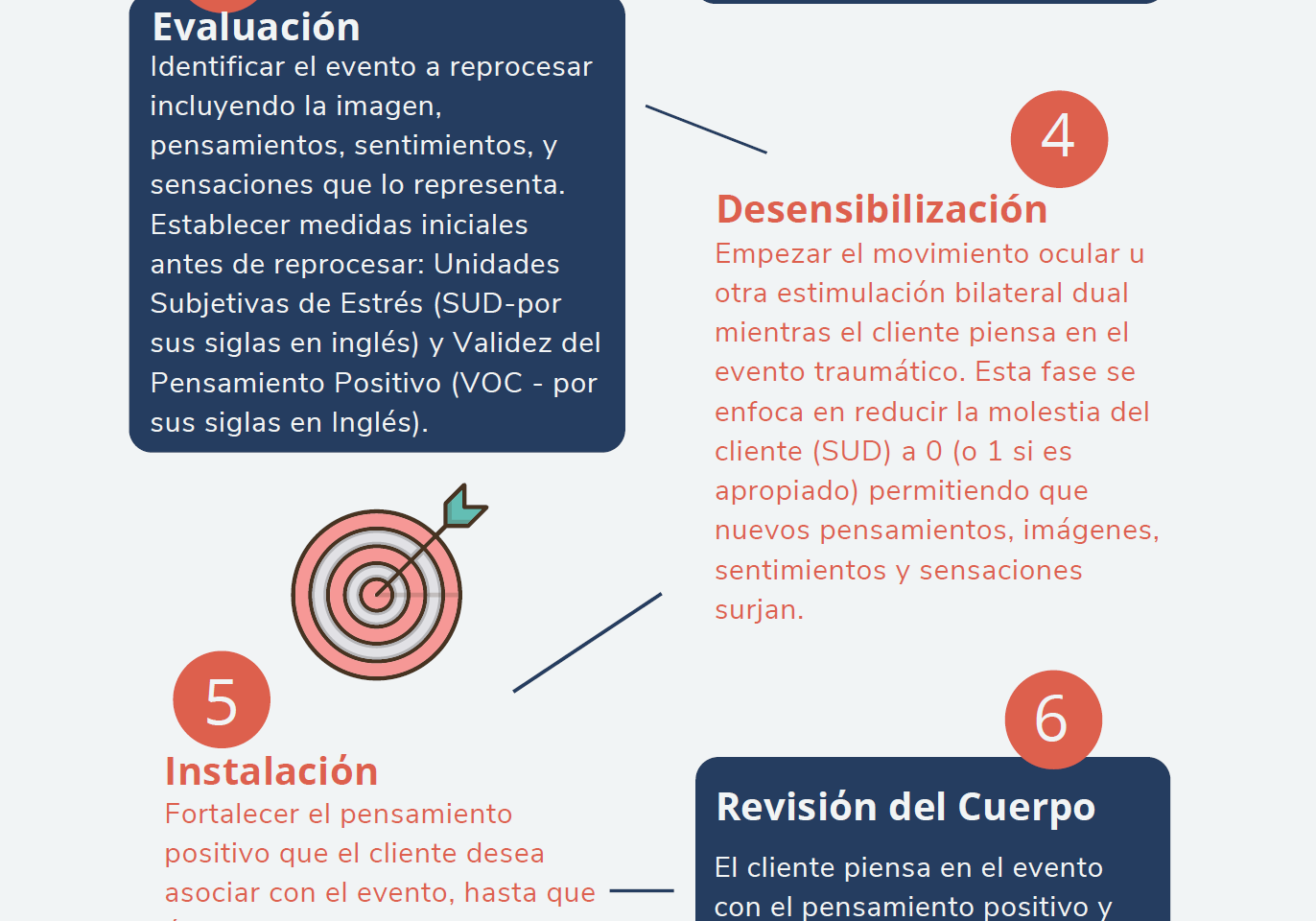Can EMDR therapy help with depression?
Yes! Learn how you can experience relief with EMDR therapy.
What is depression?
Depression can make a person feel hopeless, stuck, and overwhelmed. Traumatic and stressful life events often contribute to depressive symptoms such as negative thoughts, emptiness or sad feelings, low sense of self-worth, and difficulty finding pleasure in life. Depression is a common mood disorder with symptoms that can manifest in different ways and varying levels of severity. While there are several types of depression such as major depression, persistent depressive disorder, bipolar disorder, post-partum depression, all depressive conditions affect the body, mind, and emotions.
While the origins of depression vary, people suffering from it tend to hold negative beliefs about themselves, the world, and the future (Beck, 1979). One way that negative beliefs develop is from experiencing stressful and traumatic events that remain unprocessed and unintegrated into more adaptive beliefs. Depression is one of many problems that can result from unprocessed distressing experiences.

How can depression affect your life?
You might have trouble sleeping or sleep too much. You might find yourself either overeating or with no appetite at all. Some people report having little to no energy and virtually no sex drive. People suffering from depression might notice difficulty thinking, concentrating, or making decisions. Some people find themselves thinking about death or suicide. It is common for people with depression to feel sad, worthless, and guilty. Feelings of hopelessness and helplessness are common. Many notice a loss of interest or pleasure in activities that they once enjoyed. Additionally, depression tends to take a toll on the people around the sufferer and can become a catalyst for conflicts with family members and friends.
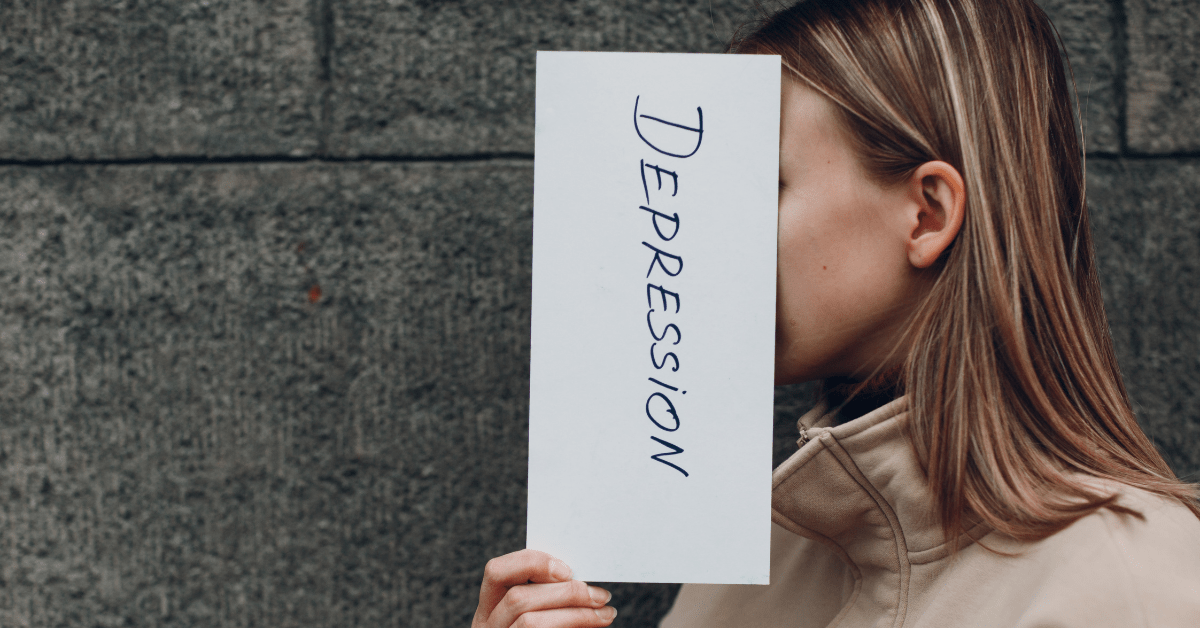
How can Eye Movement Desensitization and Reprocessing (EMDR) therapy help you overcome depression?
EMDR can relieve these depressive symptoms and help reframe negative beliefs, resolve unprocessed trauma and adverse experiences, improve energy and mood, and create a more positive understanding of the self and others. EMDR therapy can be used alone or with other approaches to create and promote a safe environment for clients to achieve their goals.
EMDR is an eight-phase psychotherapy approach that helps you tie current symptoms to negative beliefs and unresolved stressful events that have fueled and strengthened those beliefs. There is a lot of research support for the treatment of depression using EMDR therapy. An EMDR therapist will help you link your depression to unresolved events from your past. EMDR therapists will be mindful of how your culture and personal context impact you and your experience of depression. They will build a strong working relationship with you and help you develop tools for coping with how you are feeling currently. The therapist will assess your readiness for EMDR reprocessing and move at a pace that works for you.
When you are ready to process an event that is fueling your depression, your therapist will ask important questions about the event including your thoughts, feelings, body sensations, and images. Once you start reprocessing, you will start thinking about the event and follow movement with your eyes (or alternatively hold tappers in your hands or self-tap or listen to tones). During the process you will notice what happens with your body, thoughts, and feelings without judging them or just trying to change them. You just go with what comes up and notice how it changes over the course of the reprocessing sessions. While at the beginning people rarely believe that how they feel can ever change, EMDR does help people process through painful memories so that they are no longer stored in that raw, vivid, state specific form. At the same time, EMDR tackles negative beliefs such as “I am worthless,” “I am not good enough,” or “I deserve to be miserable.” Processing results in the strengthening of alternative beliefs such as, “I am okay just the way I am,” “I deserve to be happy,” and “I am lovable.”
EMDR reprocessing takes a number of sessions, and your therapist will help you to return to a calm place at the end of each session and talk to you about how to “close” down the work until your next session. It is important to communicate with your therapist about your needs, triggers, and hopes so they can help you with their supportive presence to stay grounded and present during the reprocessing process.

What are clients saying about EMDR therapy for depression?
“Before EMDR, I didn’t think I would ever stop saying mean things to myself. EMDR changed the way I view myself. I now have compassion instead of disdain for myself.”
—Margaret, age 38
“I fell into a deep depression after the death of my husband. I didn’t know that replaying parts of his last days over and over in my head a year later wasn’t part of the normal grieving process. EMDR helped me to process his death and get me out of my funk. I am still sad and miss him, but I am no longer crying every day, overeating, and sleeping too much.”
—Candace, age 65
“I know my bipolar disorder is never going to go away, but distressing memories fueled my depression. After EMDR therapy, these memories no longer bother me. I feel like I have more ability to catch myself slipping into a depression and more resources to keep me from going deep into it.”
—Kate, age 40
“After EMDR therapy, thoughts of 'I am a weakling' with feelings of sadness, fear, and disappointment changed to thoughts of 'I am motivated' with improved well-being.”
—Jose, age 15
“After treatment with EMDR, I realized that I can love and accept myself, even if my parents did not show me love as I deserve. I can see myself with loving eyes.”
—Ami, age 25

What questions can you ask your EMDR therapist about using EMDR for depression?
- What can I expect from EMDR therapy?
- How does EMDR help depression?
- What is your training and experience using EMDR for depressive symptoms?
- Can EMDR make depression worse? What will we do if I start to feel overwhelmed?
- I don’t think my depression is linked to any trauma. How would we use EMDR?

What's the next step?
Find an EMDR Therapist® in Your Area
The EMDRIA™ Find an EMDR Therapist® directory is an up-to-date resource to find EMDRIA™ members providing EMDR therapy in your area. The directory includes searches by location, name, and other criteria.
Want to learn more about EMDR therapy?
Introduction to EMDR Therapy
In this video, learn what it’s like to experience EMDR therapy and how the therapy is widely recognized by trusted organizations.
Thinking about EMDR Therapy?
What does EMDR therapy look like? This short video for clients explains the 8 Phases of EMDR Therapy and what they might experience in EMDR therapy sessions.
8 Phases of EMDR Therapy Infographic
Discover the 8 phases of EMDR Therapy to treat traumatic events. From history and treatment plan to reevaluation and more.
Infografía de las 8 fases de la terapia EMDR
Descubre las 8 fases de la Terapia EMDR para tratar eventos traumáticos. Desde la historia y plan de tratamiento hasta la reevaluación y mas.

More Resources
Find more depression resources in the EMDRIA™ Library.
Special thanks to member Dr. Laura Steele for her feedback regarding the content of this page.

